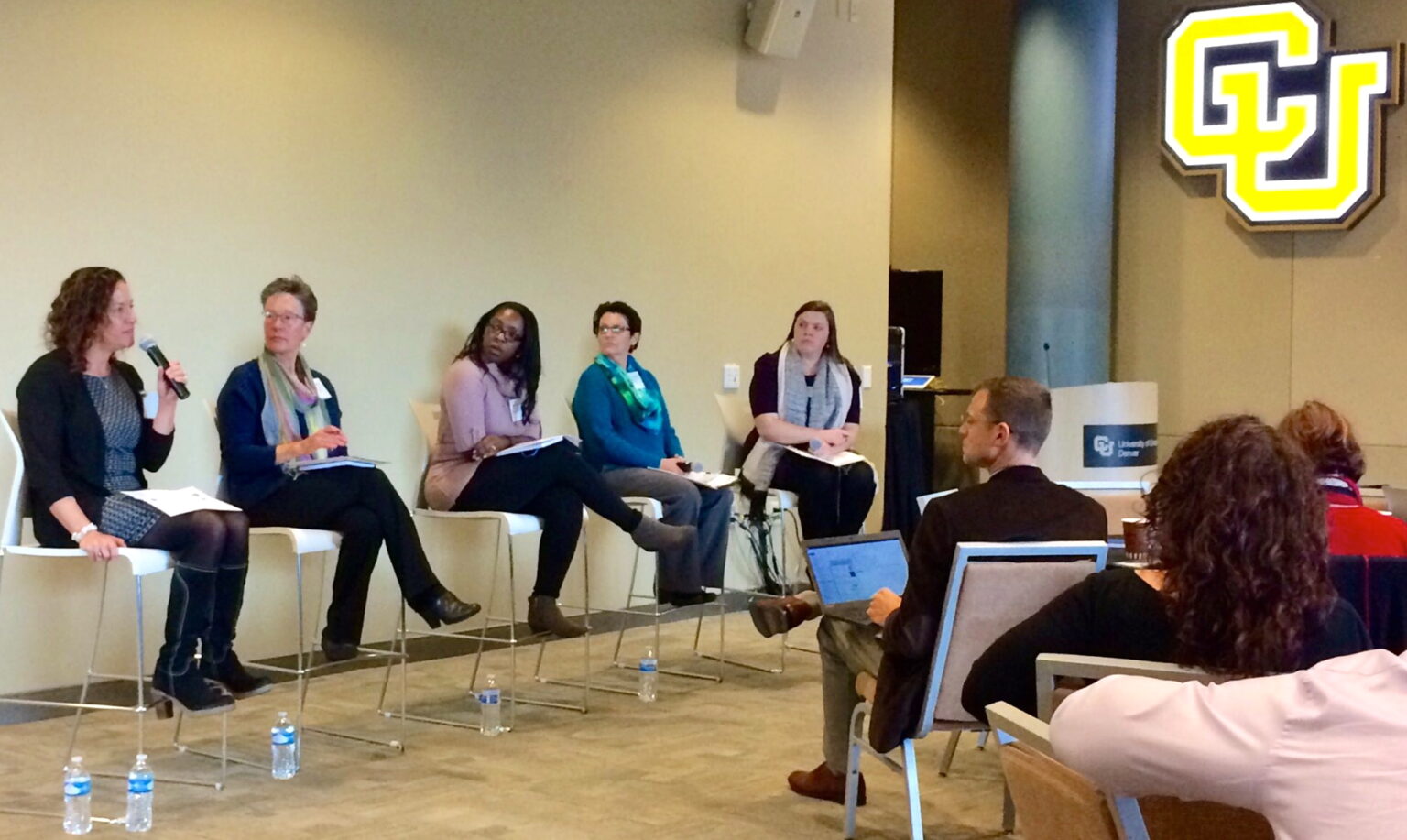Evan Richardson of Fort Meyers, FL described himself as the typical disengaged high school student. It wasn’t until he was exposed to the plethora of industry credentials in the tech sector that he realized school could be rewarding and relevant to the real world.
Evan ended up earning 30 professional IT industry certifications before he graduated high school, which encouraged him to seek a degree in computer engineering. Throughout his college experience, Evan took on IT jobs with the credentials he earned in high school. He ended up landing a job with Lockheed Martin right out of college and currently works as a software engineer for a national defense tech company.
It is stories like Evan’s that bring to life how the opportunity to earn industry credentials can change a student’s academic and economic trajectory – for the better. Coloradans can expect to see an abundance of new and expanded industry credentialing programs in high schools across our state.
That’s the obvious conclusion following a day-long Career Success Program workshop hosted in mid-December by Colorado Succeeds. The workshop focused on a new state pilot program that provides financial incentives to school districts for every student who earns an industry-recognized credential tied to an in-demand job.
Teams from 14 school districts across the state, from Durango and Grand Junction to Aurora and Douglas County, attended the workshop, along with industry association partners, business leaders, and advocacy groups. In all, nearly 50 people gathered to learn more about the program and how they could take full advantage of it to provide exciting new opportunities to students.
The new pilot program is the centerpiece of House Bill 16-1289, which passed and became law during the 2016 legislative session. Under the pilot, participating school districts and charter schools can receive up to $1,000 bonus funding for each student who completes an industry certification linked to high demand jobs, finishes a rigorous postsecondary internship, residency, or apprenticeship program tied to key industry needs, or successfully completes a Computer Science Advanced Placement (AP) course.
At Colorado Succeeds, we know that passing policy is just one part of the process; in order for a policy to really take hold it has to be implemented with support. We believe the business community must play a role in that support system, and the workshop was a first step in this work. It was also an opportunity to leverage the expertise of our educators and workforce leaders and make connections so they can learn from one another, peer to peer.
Workshop participants seemed fully engaged from the outset, and left energized and optimistic. “I learned so much today that I would love to stay in touch with everyone here,” said Kellie Lauth, STEM (Science, Engineering, Technology, and Math) coordinator for the Adams 12 Five Star School District.
The first half of the day provided what Colorado Succeeds President Scott Laband called “an information download” about the pilot program, the legislation that created it, and how to create strong credentialing programs.
School district administrators asked about the cost to districts of helping students obtain credentials, ranging from the cost of credentialing exams to transportation to job sites.
Mary Anne Hunter, postsecondary pathways coordinator at the Colorado Department of Education said that districts could use the payout for students meeting the pilot criteria to reimburse costs.
But, she stressed, the purpose of the funding is “to put money back into your program to continue helping kids get these credentials.” The payouts, she said, are not intended to go into “general school improvement.”
Several speakers emphasized that based on the experience of other states with similar programs, most notably Florida, the program’s successful two year implementation could lead to increased funding.
Several districts with successful credentialing programs shared their experiences with participants. The key, said Adams 12’s Lauth, is to start small and be persistent.
“It is about forming a partnership with even one company,” she said. Start by asking “what do you need, what is the certification you’re looking for? And then it is on us to make that pathway.”
During the afternoon, participants broke into three groups, where district teams presented credentialing challenges they needed help resolving. Next, each district team at the workshop huddled for an hour to develop proposals for how they could ramp up credentialing in their schools.
As an inducement, Colorado Succeeds dangled a $10,000 prize for the district whose proposal was voted strongest by participants, which was delivered via a Shark Tank format. The prize money would help pay for the winning district’s launch or expansion of a credentialing program.
To keep the session lively Colorado Succeeds limited each presentation to two minutes. Teams from Archuleta (Pagosa Springs), Aurora, Englewood, St. Vrain Valley, Durango, Adams 12, Jeffco, and Salida made pitches.
Their ideas ranged from expansion of an already robust program (St. Vrain) to creation of inaugural industry certification programs (Durango).
In the end, a succinct, 45-second pitch by new Salida District R-32-J Superintendent David Blackburn garnered the popular vote and prize. Credentialing efforts in Salida are currently being run by Blackburn alone.
“I am literally out there pounding nails with kids,” said Blackburn, who was the district’s director of academic affairs for four years before rising to superintendent last July. “We need more capacity, someone who can help us credential kids” and work with Colorado Mountain College to get the program going.
The goal, Blackburn said, is to establish a strong, rooted program “that will live on beyond me.”
He now has $10,000 to make that happen.

